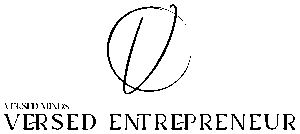Job interview success hinges on two fundamental elements: preparation and a positive attitude. Approach each interview as a unique opportunity to showcase your strengths. Here are the essential steps at a glance:
- Thorough Preparation: Research the company and role. Understand what’s expected of you.
- Practice Makes Perfect: Rehearse common interview questions with a friend to perfect your responses.
- Dress Appropriately: Present yourself well to make a strong first impression.
- Communicate Clearly: Listen actively and answer questions succinctly.
- Stay Positive and Confident: Emphasize your fit for the role with honesty and enthusiasm.
The secret to overcoming past interview challenges and achieving job interview success lies in leveraging these steps. While many factors play into a successful interview, those who prepare with a positive mindset position themselves ahead of the competition.
I’m Gabrielle Reese, with experience in empowering aspiring entrepreneurs and small business owners, I understand the importance of job interview success in career advancement. Let’s explore how preparation and attitude can truly make a difference in mastering your next interview.
Quick job interview success definitions:
Table of Contents
ToggleMastering the Basics of Job Interview Success
Achieving job interview success hinges on three essential elements: preparation, practice, and communication skills. Let’s explore each one to help you excel in your next interview.
Preparation: Your Secret Weapon
Preparation goes beyond just knowing the company’s name. It involves a deep dive into the organization’s mission, values, and recent projects. This understanding not only demonstrates your genuine interest but also allows you to tailor your responses to align with the company’s objectives.
Checklist for Preparation:
- Research the Company: Visit their website, read recent news articles, and explore their social media presence.
- Understand the Role: Analyze the job description to identify required skills and how your experience matches.
- Know Your Interviewers: Check LinkedIn profiles of your interviewers to find common interests or connections.
Practice: The Path to Perfection
Practicing for an interview is akin to rehearsing for a play. The more you practice, the more confident and natural you become. Mock interviews can be transformative, allowing you to refine your answers and enhance your delivery.
Practice Tips:
- Mock Interviews: Have a friend or family member ask you common interview questions.
- Use the STAR Method: Structure your responses using Situation, Task, Action, and Result to provide clear and concise answers.
- Record Yourself: Listening to your responses can help you identify areas for improvement.
Communication Skills: The Art of Engagement
Effective communication is vital during an interview. It’s not just about speaking; it’s about listening and engaging in meaningful dialogue. Good communication can distinguish you from other candidates.
Communication Strategies:
- Active Listening: Pay close attention to the interviewer’s questions and respond thoughtfully.
- Clarity and Brevity: Keep your answers clear and to the point. Avoid rambling.
- Body Language: Maintain eye contact and a positive posture to convey confidence and interest.
Mastering these basics can transform your interview experience. By preparing thoroughly, practicing diligently, and communicating effectively, you’ll be well on your way to achieving job interview success. Let’s dive deeper into structured approaches like the STAR method in the next section.
The STAR Method: A Structured Approach
Achieving success in job interviews can be challenging, especially if you’ve faced setbacks before. The STAR method is a powerful tool to help you articulate your experiences clearly and effectively. This structured approach involves breaking down your experiences into four key components: Situation, Task, Action, and Result.
Situation: Setting the Scene
Begin by describing the context of your experience. What was happening at the time? This is your opportunity to set the stage. Be specific but concise. For example, “In my previous role, our team was tasked with launching a new marketing campaign during the holiday season.”
Task: Your Role
Next, clarify your responsibility in that situation. What challenge or task were you faced with? Make sure to highlight your role clearly. For instance, “I was responsible for coordinating the creative team and ensuring all deliverables were on schedule.”
Action: What You Did
This is where you delve into the details of your actions. Focus on the steps you took to address the task. It’s important to emphasize your contributions. For example, “I implemented a project management tool to track progress and held daily stand-up meetings to address any roadblocks quickly.”
Result: The Outcome
Finally, share the results of your actions. What did you achieve? Whenever possible, quantify your success. This is where you demonstrate the impact of your efforts. For example, “The campaign launched on time and increased our engagement rates by 30% compared to the previous year.”
Using the STAR method not only helps in organizing your thoughts but also showcases your problem-solving and critical-thinking skills. It provides a clear narrative that can make your achievements stand out during the interview.
By structuring your responses with the STAR method, you can effectively convey your experiences and demonstrate your ability to handle challenges. This approach highlights your competencies and presents you as a well-rounded candidate ready for the job.
Let’s move on to explore the 5 C’s of interviewing, which delve into character, culture fit, and more.
The 5 C’s of Interviewing
When it comes to job interview success, understanding the 5 C’s can make all the difference. These are key attributes that interviewers look for in candidates: Character, Culture Fit, Career Direction, Competence, and Communication Skills.
Character: Building Trust
Character is all about integrity and honesty. Employers want to know if you’re trustworthy and reliable. Showcasing your character means being truthful about your experiences and owning up to your mistakes. Honesty builds trust, and trust is crucial in any workplace.
Culture Fit: Aligning with Values
Culture fit is about how well you align with the company’s values and culture. Employers often look for candidates who will blend seamlessly with their team. To demonstrate this, do your homework. Learn about the company’s mission and values. During the interview, share examples that show how your values align with theirs.
Career Direction: Planning Ahead
Career direction involves your long-term goals and how this position fits into your career path. Employers want to invest in candidates who are looking to grow with the company. Discuss your future aspirations and how the role aligns with your career goals. This shows you’re not just looking for any job, but the right job.
Competence: Proving Your Skills
Competence refers to your skills and qualifications for the job. This includes both hard and soft skills. Use specific examples to demonstrate your capabilities. Whether it’s your technical expertise or your ability to work in a team, make sure you highlight the skills that are most relevant to the position.
Communication Skills: Expressing Clearly
Communication skills are essential in almost every role. Good communication means you can convey your ideas clearly and listen to others. Practice active listening during the interview and ensure your answers are concise and to the point. Use the STAR method to structure your responses, as it helps in presenting your thoughts logically.
By focusing on these 5 C’s, you can present yourself as a well-rounded candidate who is not only qualified but also a great fit for the company. Next, let’s explore the 4 P’s of interview preparation, which will help you get ready for the big day.
The 4 P’s of Interview Preparation
Achieving job interview success requires mastering the 4 P’s—Prepare, Practice, Present, and Participate. These steps are crucial for making a lasting impression and engaging effectively during your interview.
Prepare: Laying the Groundwork
Preparation is the cornerstone of a successful interview. Begin by researching the company and understanding the role you are applying for. Familiarize yourself with the company’s mission, values, and recent achievements. This knowledge allows you to tailor your responses and ask informed questions.
Create a checklist of what to bring: copies of your résumé, a list of questions for the interviewer, and any other relevant documents. Plan your route to the interview location and allow extra time for unexpected delays.
Practice: Rehearse to Impress
Practicing your responses to common interview questions can significantly boost your confidence. Conduct mock interviews with a friend or family member. Focus on answering questions clearly and concisely, using the STAR method (Situation, Task, Action, Result) to structure your responses.
Review questions like:
- Why do you want to work here?
- What are your strengths and weaknesses?
Practicing helps you articulate your thoughts and reduces nervousness on the day of the interview.
Present: Making a Strong Impression
Your presentation begins with how you dress and groom yourself. Aim to dress one step above the typical workplace attire. Ensure your outfit is clean, well-fitted, and appropriate for the company culture. Personal grooming, like a neat haircut and trimmed nails, also contributes to a positive first impression.
During the interview, maintain good posture, make eye contact, and smile. These non-verbal cues convey confidence and interest.
Participate: Engage Actively
Participation is about being an active and engaged candidate during the interview. Listen attentively and respond thoughtfully to questions. Show genuine interest by asking insightful questions about the company and the role. This demonstrates your enthusiasm and helps you gather information to decide if the job is the right fit for you.
The interview is a two-way street. It’s not just about them assessing you, but also about you evaluating the company.
By focusing on these 4 P’s, you’ll be well-prepared to tackle your next interview with confidence. Next, we’ll dive into common job interview questions and how to answer them effectively.
Common Job Interview Questions and How to Answer Them
Achieving job interview success requires preparation and the ability to effectively communicate your story and accomplishments. Let’s delve into how you can tackle common interview questions with confidence.
Tell Me About Yourself
This question is an opportunity to introduce yourself and connect your past experiences with the role you’re applying for. Start with a brief background, highlight key achievements, and conclude with why you’re excited about this opportunity.
Example:
“I graduated with a degree in marketing and have spent the last three years honing my skills at XYZ Corp, where I increased social media engagement by 50%. I’m eager to bring my expertise to your team and help drive similar results.”
What Are Your Greatest Strengths?
Focus on strengths that are relevant to the job. Use specific examples to illustrate how these strengths have helped you succeed in the past.
Example:
“One of my greatest strengths is problem-solving. At my previous job, I identified a bottleneck in our supply chain and implemented a new process that reduced delays by 30%.”
What Is Your Biggest Weakness?
Be honest but strategic. Choose a real weakness and explain how you’re working to improve it. This shows self-awareness and a commitment to growth.
Example:
“I tend to be a perfectionist, which sometimes slows me down. I’ve been working on balancing quality with efficiency by setting realistic deadlines for myself.”
Why Do You Want to Work Here?
Show that you’ve done your homework. Link your career goals with the company’s mission and values.
Example:
“I admire your company’s commitment to innovation and sustainability. As someone passionate about eco-friendly practices, I’m excited about the opportunity to contribute to projects that align with my values.”
Describe a Challenge You’ve Overcome
Use the STAR method to structure your response. This ensures you cover the situation, task, action, and result clearly.
Example:
“In my last position, we faced a sudden drop in sales. I led a team to analyze market trends (Situation and Task). We developed a targeted marketing campaign (Action), resulting in a 20% sales increase within three months (Result).”
Where Do You See Yourself in Five Years?
Discuss your career aspirations and how the role fits into your plan. This shows the interviewer that you’re looking for a long-term opportunity.
Example:
“In five years, I see myself leading a marketing team, driving strategic initiatives. I believe this role will provide the foundation and experience I need to achieve that goal.”
Do You Have Any Questions for Us?
Always have a few questions ready. This shows your interest and helps you assess if the company is the right fit for you.
Example Questions:
- “Can you describe the team I would be working with?”
- “What does success look like in this role?”
By preparing thoughtful responses and using storytelling to highlight your achievements, you’ll be well-equipped to handle common interview questions with confidence. Next, we’ll address frequently asked questions about job interview success.
Frequently Asked Questions about Job Interview Success
What makes a job interview successful?
Achieving success in a job interview often hinges on several crucial factors: honesty, effective communication, and establishing a personal connection. Being honest fosters trust, as interviewers can usually detect insincerity. It’s essential to be truthful about your experiences and skills.
Maintaining eye contact is a powerful tool. It demonstrates confidence and helps build rapport with your interviewer. When you maintain eye contact, it signals that you are engaged and interested in the conversation.
Using examples from your past experiences can vividly illustrate your abilities and achievements. Sharing specific stories about overcoming challenges or achieving goals makes your qualifications more tangible and memorable.
What are the 7 most common interview questions and answers?
-
Tell me about yourself.
- Answer: Provide a brief professional summary that connects your past experiences to the job you’re applying for. Focus on achievements and your enthusiasm for the role.
-
What are your greatest strengths?
- Answer: Highlight strengths relevant to the job, supported by specific examples of how these strengths have helped you succeed.
-
What is your biggest weakness?
- Answer: Be honest about a real weakness and explain how you’re working to improve it, demonstrating self-awareness and growth.
-
Why do you want to work here?
- Answer: Show you’ve done your homework by linking your career goals with the company’s mission and values.
-
Describe a challenge you’ve overcome.
- Answer: Use the STAR method (Situation, Task, Action, Result) to clearly outline how you successfully tackled a challenge.
-
Where do you see yourself in five years?
- Answer: Discuss your career aspirations and how the role fits into your long-term plan, showing you’re looking for a long-term opportunity.
-
Do you have any questions for us?
- Answer: Always prepare a few thoughtful questions about the role, team, or company culture. This shows your interest and helps you determine if the company is a good fit for you.
What are 5 tips for a successful job interview?
-
Preparation is key. Research the company and role thoroughly. Know the interview details, like time and place, and plan your journey to avoid any last-minute delays.
-
Practice makes perfect. Conduct mock interviews with friends or family. This helps you respond naturally and confidently to questions.
-
Present yourself well. Dress appropriately and maintain good posture. First impressions matter, and dressing one step above the job’s dress code can make a positive impact.
-
Participate actively. Engage with your interviewer by asking insightful questions. This shows you’re interested and have done your homework.
-
Communicate clearly. Speak clearly and concisely. Use examples to back up your points and ensure your answers are structured and to the point.
By focusing on these elements, you can increase your chances of job interview success. Next, we’ll explore how to follow up after an interview to leave a lasting impression.
Conclusion
At Versed Entrepreneur, we believe that the journey to job interview success doesn’t end when you walk out of the interview room. It’s crucial to follow up with a thoughtful thank-you note. This simple gesture can reinforce your interest in the position and help you stand out from other candidates.
Sending a Thank-You Note:
Crafting a thank-you note is an art. It’s about expressing gratitude and reiterating your enthusiasm for the role. Aim to send your thank-you email within 24 hours of the interview. This timing keeps you fresh in the interviewer’s mind and demonstrates your promptness and professionalism.
In your note, mention specific topics you discussed during the interview. This personal touch shows that you were engaged and are genuinely interested in the position. Avoid discussing salary or benefits in this note; keep the focus on gratitude and enthusiasm.
Why Follow-Up Matters:
Following up is not just a courtesy; it’s a strategic move. A well-crafted thank-you note can clarify any points you may have missed during the interview and reinforce your qualifications. It also gives you a chance to highlight any additional skills or experiences that might benefit the company.
If you were interviewed by multiple people, consider sending individual notes to each person. Personalizing each message can leave a lasting impression and demonstrate your attention to detail.
For more tips on how to excel in your career, explore our Career Development resources. Our guides offer comprehensive insights into leadership styles, business strategies, and more, designed to improve your workplace culture and productivity.
This is not legal advice and reach out to a professional if you have any questions.











